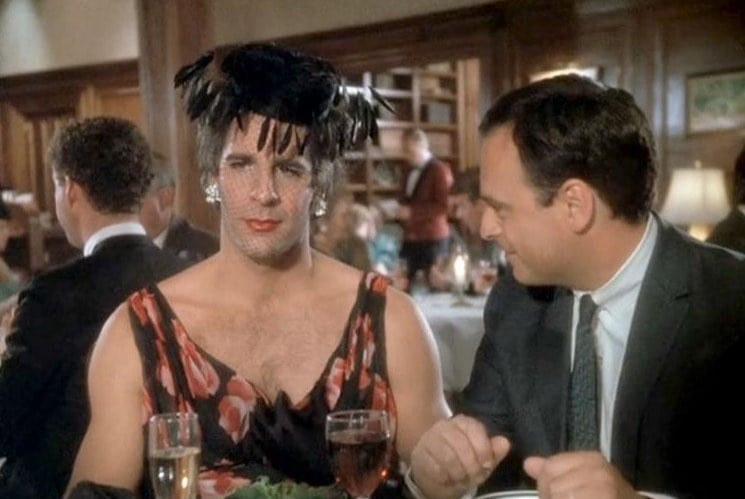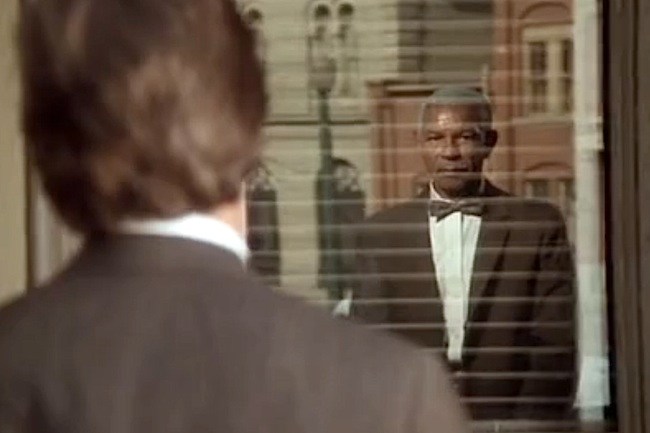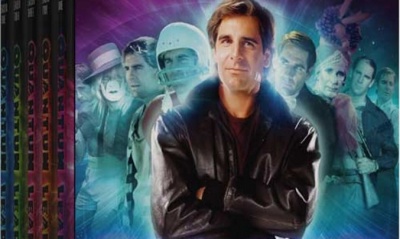Putting Things Right…Quantum Leap (1989-1995)
From The TV Obsessive, by Hanmii Dahri-Mote, a regular column in TV Guide and other publications
Life is unfair. Bad things happen to good people, while bad people grow rich, grow old, and die in luxury. We seek solace in religion and philosophy and fantasy, hoping to find justice and rightness in a world that refuses to be right or just. I recently lost someone that I love and saw the perpetrator escape with little consequence due to his connections, so such things have been on my mind of late. And while this column is usually a fun deviation into nostalgia, the truth is that the entertainment that we consume is quite often, it seems, the world as we wish it to be, where fairness and justice always win and the evil and the self-serving get their comeuppance.
That’s why I’m suddenly finding myself binging old VHS copies of
Quantum Leap (1989-1995)[1], a show about Cosmic Justice using a science fiction pretext. The show, from Belisarius Productions, featured Scott Bakula as Dr. Sam Beckett, a quantum researcher who, due to an experimental accident, “leaps” into different bodies from people within his lifetime[2]. Assisted by the holographic projection of his crusty partner Al Calavicci and an artificial intelligence named “Ziggy”, he remains trapped in the other person’s body until he’s able to “put right which once went wrong”, typically in the form of preventing the death of an innocent or other injustice, before he can leap to the next body, forever hoping to one day leap back into his own life in the near future. It’s overtly nostalgic for the past times that each episode is set within, but also doesn’t shy from addressing the problems of that era, from racism to sexism, to homophobia.
(Image source “slashfilm.com”)
The show takes the form of a murder mystery of sorts and usually centers around themes of justice, typically social justice but also financial or environmental or legal justice. It deals with some “wrongness” that had happened in the past and puts it “right”. It could be a black man suffering at the hands of the segregated south, a young man driven by school bullies into a situation that would prove fatal, or a housewife that’s the victim of abuse. The dark subject matter was softened with comedy and situational irony, with Scott Bakula frequently appearing in drag or otherwise pushed into circumstances way out of his comfort zone. His “Oh, boy…” catchphrase captured both the sheer weight of the circumstances and the inherently wholesome and innocent nature of Sam himself. You had to root for this guy, and not just because of the inherent good that he was doing.
(Image source “ascmag.com”)
The formula struck a chord with audiences, who tuned in in huge numbers, making
Quantum Leap a certified hit. Not only was it a fun show, but it’s what we wish could happen when we look back at the terrible things that happened in our lives, from the preventable death of an innocent or good person to the avoidance of some catastrophe. And it does this, at least in the early seasons, with a good scoop of humor and naturalistic drama. Later seasons delved into more overtly spiritual areas, particularly seasons 5-7 on Hyperion, which individual viewers either loved or hated, though arguably from a strictly writing standpoint it killed some of the mystery that carried the show forward as much as did the clever writing, great chemistry between Bakula and Stockwell, and inherent sense of justice.
(Image source “billprickett.com”)
The show holds up well for the most part, though it is, like the original
Star Trek, both ahead of its time and a product
of its time. The show is unafraid to touch the third rails of race, gender equality, and even LGBTQ issues (in one episode, the issue of gays in the military was addressed, which was timely in the era but also bravely taking a stance against hate when this was a controversial stance to take). On the other hand, it relied heavily on the White Savior trope, which was honestly nigh unavoidable given the very premise of the show. The frequent use of Sam in drag can be seen either as an ahead-of-its-time acknowledgement of nonbinary gender identity, or seen as an anachronistic throwback to “drag as heteronormative comedy”. And Al’s Standard ‘80s/’90s Comedy Misogyny and the use of Male Gaze don’t play as well today, even as they were standard comedy fare at the time. But such anachronisms aside, the show’s inherent sense of Justice is what makes it work so well even today.
Is this just mindless wish fulfilment? It certainly makes for good television, but is it, as some have accused, setting up false promises of justice and rightness in an unjust world? Does it make the pain of losing a loved one all the more painful by giving us a subconscious feeling that this is “not the way it’s supposed to be?” Is it, in a few words, making the pain of injustice worse with a Pollyanna-like view of the universe?
(Image source “themindreels.wordpress.com”)
Perhaps we seek such fictional justice for a reason? Perhaps it’s a critical part of how we learn to develop a sense of justice and avoid cynicism and hopelessness. Perhaps this is how we inspire others to seek to achieve justice? Who knows? I’m no philosopher.
(Image source “icv2.com”)
It’s easy to dismiss shows like
Quantum Leap as mindless wish-fulfilment and escapism from an unjust world, but perhaps we need to give it and things like it a closer look.
[1] Hat tip to
@Clorox23.
[2] I figured that Bellisario was working from his own personal set of objectives and with a high degree of independence. As such, there’s reason to expect second order butterflies can apply here.





